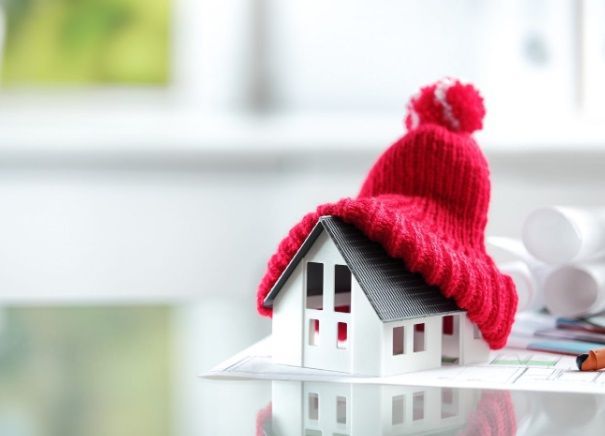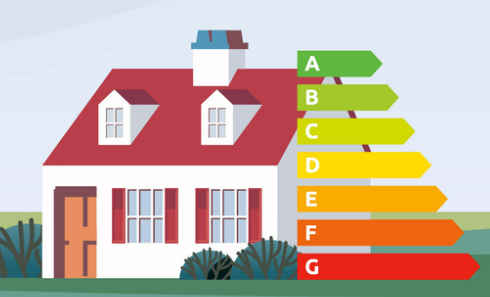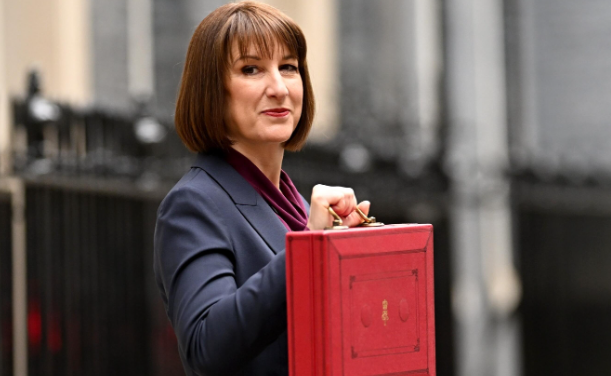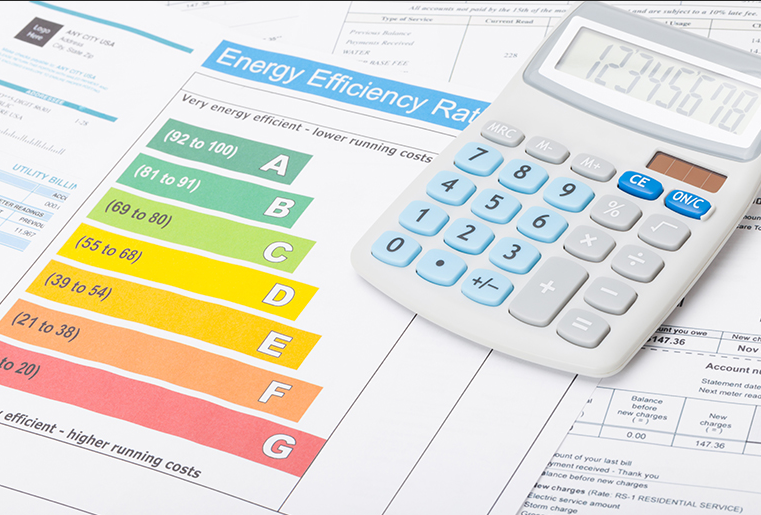Why Retrofitting is Essential for Increasing Energy Efficiency, Future-Proofing, and Enhancing Property Valuation - 2 Minute read
7 November 2024
As energy costs continue to rise and environmental concerns gain attention, retrofitting properties for energy efficiency has become more critical than ever. For homeowners, investors, and developers, retrofitting offers a powerful solution to reduce energy costs, future-proof buildings, and boost property value. In this blog, we’ll dive into why retrofitting is essential and how it benefits both homeowners and the environment.

1. Energy Efficiency: A Cost-Saving Upgrade
One of the primary reasons for retrofitting is to improve a property’s energy efficiency. Older buildings, especially those built before modern energy codes, often have outdated systems that consume more power than necessary. By upgrading these systems, homeowners can significantly reduce energy consumption, resulting in lower utility bills.
Key Energy-Efficient Retrofits:
• Insulation Improvements: Adding or upgrading insulation reduces heat loss in winter and keeps homes cooler in summer, reducing the need for heating and cooling systems.
• Efficient Heating Systems: Swapping old boilers or heaters for energy-efficient models reduces power consumption and improves heating quality.
• Smart Technology Integration: Smart thermostats, lighting systems, and home automation tools help monitor and control energy usage, optimizing efficiency.
2. Future-Proofing for Long-Term Resilience
Beyond cost savings, retrofitting can also future-proof properties. As energy efficiency standards become more stringent, buildings that fall short may require costly upgrades to comply with new regulations. By proactively retrofitting now, homeowners can ensure that their properties meet or exceed future standards, saving time and money in the long run.
Why Future-Proofing Matters:
• Regulatory Compliance: Governments worldwide are tightening building codes to improve energy efficiency and reduce carbon emissions. By retrofitting, you can stay ahead of these changes.
• Environmental Responsibility: As climate concerns grow, there’s an increasing focus on sustainable building practices. Retrofitting aligns your property with environmental standards, helping reduce its carbon footprint.
• Adaptation to Climate Change: Retrofitting with climate resilience in mind—like improving ventilation, water systems, and insulation—helps homes withstand extreme weather events, which are becoming more frequent.
3. Increased Property Valuation: A High ROI
Energy-efficient retrofits are not only good for the environment but can also have a positive impact on property valuation. Buyers today are more aware of energy costs and environmental impact, and properties with energy-efficient features often sell for higher prices. Studies have shown that properties with higher Energy Performance Certificate (EPC) ratings are more attractive to potential buyers, offering a valuable return on investment.
How Retrofits Add Value:
• Higher EPC Rating: A property with a better EPC rating is often more appealing to buyers, as it indicates lower running costs and higher energy efficiency.
• Enhanced Curb Appeal: Improved energy-efficient systems make the home more visually appealing and provide a sense of modernity and quality.
• Market Differentiation: In competitive real estate markets, an energy-efficient property can stand out, giving sellers a unique selling point that differentiates their home from others.
Practical Retrofits to Consider for Maximum Impact
While many types of retrofits can increase energy efficiency, these are some of the most impactful upgrades:
1. Solar Panels: A renewable energy source that reduces dependency on grid electricity, potentially even earning income through surplus energy generation.
2. Loft and Wall Insulation: Greatly reduces heat loss, which is particularly beneficial in older homes with poor insulation.
3. Energy-Efficient Lighting: Replacing traditional lighting with LED bulbs can reduce electricity consumption and enhance lighting quality.
4. Smart Home Controls: Technology that allows for remote control of heating, lighting, and appliances can help optimize energy usage and reduce waste.
Conclusion
Retrofitting your property is a wise investment that pays off in multiple ways: lowering energy bills, reducing environmental impact, preparing for future regulations, and enhancing property value. As awareness of sustainable living grows, retrofitted properties will only continue to increase in demand and value.
Bill Millington
Content Manager
Bill's unique combination of financial expertise as a qualified Mortgage & Equity Release Advisor and energy efficiency knowledge as a qualified Domestic Energy Assessor & Retro Fit Assessor, allows him to provide actionable advice that not only helps homeowners reduce their environmental impact but also make smarter financial decisions that pay off in the long run.

From Dreams to a Greener Reality - How a Young Couple Benefited from an ECO4 Upgrade - 4 Minute Read
Their Journey to Homeownership James and Ellie purchased their charming two-bedroom home, three years ago. The property, built in the 1960s, ticked many boxes for the young couple: character, a spacious garden, and proximity to local amenities. However, like many older homes, it came with its drawbacks with an outdated heating systems and high energy bills during colder months. While they loved their home, it became clear they needed to make some upgrades, especially as energy costs began to rise. Yet, balancing the cost of renovations alongside other expenses was a daunting prospect. Discovering the ECO4 Scheme One day, while chatting with a friend about ways to reduce their energy bills, Ellie learned about the ECO4 scheme. Designed to help low-income households improve the energy efficiency of their homes, ECO4 is available to those on eligible benefits. It provides free or heavily subsidized upgrades, including insulation, heating systems, and renewable energy installations. As James and Ellie were receiving an eligible benefit, they decided to explore the scheme further. After a quick online search and a call to Help to Heat UK they realized their property qualified for several upgrades. The Application Process Applying for the ECO4 scheme was a straightforward process: Eligibility Check: The couple provided proof of their benefit status and homeownership to Help To Heat UK. Home Assessment: A surveyor conducted a detailed inspection of their property, identifying areas where energy efficiency improvements could be made. Approval and Planning: Once approved, a plan was created to install internal wall insulation, loft insulation, and a modern, air sourced heat pump. James and Ellie were thrilled to learn that these upgrades would be fully funded through the scheme, saving them thousands of pounds. The Transformation The installation process took just over a week, with minimal disruption to their daily lives. The difference was immediately noticeable. Their once-drafty home now retained warmth, and the new air sourced heat pump provided efficient and reliable heating. Not only were their energy bills lower, but the couple also felt a sense of pride knowing their carbon footprint had been significantly reduced. Beyond the tangible benefits, the improvements increased the value of their home—a crucial bonus for a young couple thinking about their future. A Brighter, Greener Future James and Ellie’s story is a testament to how schemes like ECO4 can make a real difference. For homeowners, especially those balancing tight budgets, these opportunities provide a pathway to a more comfortable, energy-efficient home without the financial burden of expensive renovations. The couple now enjoys their warm and cozy home, knowing they’ve made a positive step towards sustainability. And as they look forward to the future, they encourage others in similar situations to explore what ECO4 can offer. Could You Benefit from ECO4? If you’re a homeowner in the UK and receive an eligible benefit, you too could take advantage of the ECO4 scheme. Whether it’s upgrading your insulation, replacing an old heating system, or incorporating renewable energy solutions, the program offers a fantastic way to improve your home and lower your energy bills. T ake a page from James and Ellie’s story—check your eligibility today and embark on your own journey to a greener, more affordable home. For more information, please contact Help to Heat UK on 01709 811114 *Name changed to protect privacy. Bill Millington Content Manager Bill's unique combination of financial expertise as a qualified Mortgage & Equity Release Advisor and energy efficiency knowledge as a qualified Domestic Energy Assessor & Retro Fit Assessor, allows him to provide actionable advice that not only helps homeowners reduce their environmental impact but also make smarter financial decisions that pay off in the long run.

The Tenant’s Story John*, a 78-year-old retired miner, has lived in a rented property in Maltby for over two decades. While his home held many cherished memories, it was becoming increasingly challenging to manage. The aging structure, lack of insulation, an inefficient heating system, and soaring energy bills left John struggling to keep warm during South Yorkshire’s cold winters. Living on a fixed income and relying on Pension Credit, John had little capacity to fund improvements himself. But thanks to the ECO4 scheme and a proactive landlord, help was on the way. The Landlord Steps In ECO4 focuses on improving the least energy-efficient homes occupied by vulnerable residents. Under the scheme, landlords of private rental properties can apply for funding to upgrade properties if their tenants meet eligibility criteria, such as receiving certain benefits. John’s landlord, keen to support his tenant and improve the property, discovered that ECO4 could cover substantial upgrades. Armed with John’s consent and proof of his eligibility through Pension Credit, the landlord applied and successfully secured funding. The Property Transformation The approved upgrades delivered a state-of-the-art transformation to the property, including: 1. Solar Panels: Generating renewable electricity to power the home and reduce reliance on the grid. 2. Air Source Heat Pump (ASHP): Replacing the old boiler with a highly efficient, low-carbon heating system. 3. Loft and Wall Insulation: Significantly improving the home’s ability to retain heat. 4. Smart Heating Controls: Allowing John to efficiently manage his heating system. These upgrades were installed at no cost to either John or his landlord, with funding provided through the ECO4 scheme. The Benefits The transformation of John’s home delivered significant advantages: • Substantial Energy Savings: The solar panels and ASHP reduced John’s energy bills dramatically, making heating and electricity far more affordable. • A Warm, Comfortable Home: The combination of insulation, double glazing, and efficient heating created a cozy environment, even during South Yorkshire’s chilliest days. • Eco-Friendly Living: The use of renewable energy and low-carbon heating helped John contribute to a greener future. Improved Health and Wellbeing: A consistently warm home reduced John’s risk of cold-related illnesses, improving his quality of life. For the landlord, the property’s value, appeal, and environmental footprint all improved, demonstrating the mutual benefits of upgrading rental homes through government schemes. Inspiring Collaboration in Maltby This story underscores the potential for landlords, tenants, and local communities to work together for meaningful change. John’s landlord was guided by Help to Heat UK, who ensured the process was seamless and successful. Could You or Your Tenant Benefit from ECO4? If you’re a landlord with tenants on eligible benefits or a tenant struggling with a non-energy-efficient home, it’s worth exploring the ECO4 scheme. By embracing renewable energy solutions like solar panels and heat pumps, you can reduce energy costs, improve comfort, and contribute to the UK’s net-zero emissions goal. *Name changed to protect privacy. Bill Millington Content Manager Bill's unique combination of financial expertise as a qualified Mortgage & Equity Release Advisor and energy efficiency knowledge as a qualified Domestic Energy Assessor & Retro Fit Assessor, allows him to provide actionable advice that not only helps homeowners reduce their environmental impact but also make smarter financial decisions that pay off in the long run.

The primary goal is to reduce fuel poverty and cut carbon emissions by offering eligible households free upgrades, such as insulation, new heating systems, or renewable energy installations. Funded by large energy companies, the scheme focuses on improving the energy performance of homes with low EPC (Energy Performance Certificate) ratings, targeting houses in bands D to G. Eligibility is typically based on household income and receipt of certain government benefits, including Universal Credit, Child Benefit (income-based), or Pension Guarantee Credit. Private renters and homeowners can both apply, although eligibility criteria vary slightly by housing type. Once eligible, homeowners or landlords undergo an assessment by an energy assessor, who recommends upgrades that will most improve energy efficiency. Following approval, installations are performed at no cost to the homeowner. This scheme can significantly reduce energy bills and improve home comfort, particularly helpful amid rising energy costs. Bill Millington Content Manager Bill's unique combination of financial expertise as a qualified Mortgage & Equity Release Advisor and energy efficiency knowledge as a qualified Domestic Energy Assessor & Retro Fit Assessor, allows him to provide actionable advice that not only helps homeowners reduce their environmental impact but also make smarter financial decisions that pay off in the long run.

In a bid to combat climate change and enhance energy efficiency in residential properties, the latest budget introduced significant changes affecting landlords across the UK. One of the most impactful measures is the requirement for all rental properties to achieve a minimum Energy Performance Certificate (EPC) rating of Band C by 2030. This initiative marks a crucial step towards creating more sustainable living environments, but it also brings a host of challenges and opportunities for landlords. What is an Energy Performance Certificate (EPC)? An Energy Performance Certificate (EPC) assesses the energy efficiency of a property on a scale from A (very efficient) to G (very inefficient). This certificate is crucial for prospective tenants, as it provides insight into the potential energy costs associated with living in a property. Currently, properties must have at least a Band E rating to be rented out, but the new rules aim to raise this standard significantly. The New Requirements Starting from 2023, landlords will need to ensure that their rental properties meet the new EPC Band C requirement by 2030. This transition is part of a broader government strategy to reduce carbon emissions and promote energy-efficient living. Bill Millington Content Manager Bill's unique combination of financial expertise as a qualified Mortgage & Equity Release Advisor and energy efficiency knowledge as a qualified Domestic Energy Assessor & Retro Fit Assessor, allows him to provide actionable advice that not only helps homeowners reduce their environmental impact but also make smarter financial decisions that pay off in the long run.

Why should I improve the EPC rating of my home? The more energy efficient a home is, the less it will cost to heat and light. Also, energy efficient homes have lower carbon emissions, so it’s good for your budget and for the planet. Don’t forget Green Mortgages where the higher the EPC rating the potential for a lower mortgage interest rate. Provided that you are an eligible benefit, as either homeowner or tenant, none of the recommendations on the EPC require any investment to improve your home’s energy efficiency, as covered under the ECO4 Free Grant Scheme. 5 ways to improve your EPC for Free via the ECO4 Scheme. Replace boiler with a new condensing boiler. Install or upgrade your loft insulation. Insulate your floor. Install wall insulation. Install solar panels. Replace your boiler with a new condensing boiler. If you’ve living in an older home, your boiler might need upgrading. Upgrading from a G-rated gas boiler with no controls to an A-rated boiler with all heating controls saves on average £580 a year. Install or upgrade your loft insulation. Unless you live in a mid or ground-floor flat, around 26% of your home’s heat will escape through the roof. While most homes have at least some loft insulation, often it’s not enough. Topping up from 120mm to at least 300mm of insulation will help – and it’ll save you on average around £25 each a year on your bills. Insulate your floor. Insulating under your floorboards could save you on average around £80 a year and in a semi-detached property or up to £135 if you live in a detached house. Install wall insulation. One of the most common recommendations on an EPC is to install wall insulation. Around a third of all the heat lost in an uninsulated home escape through the walls, so it’s worth thinking about. Adding wall insulation can give you the greatest savings. Most homes in the UK have cavity walls, and you can fill the gap with insulation. An estimate that insulating your cavity walls could save on average around £280 per year on your energy bills. If you have solid walls, these can be insulated from the inside or outside of your home. While costs and savings vary, an estimate that a semi-detached house could save around £380 a year after installing solid wall insulation. Install solar photovoltaic (PV) panels . These are the most common domestic renewable energy source in the UK. Once Installed your energy costs will be significantly reduced, with an estimated saving of around £405 a year . What’s more, you’ll cut your household carbon emissions by an impressive 730kg of carbon dioxide a year.

Whether an individual is buying an older home or remortgaging – Some mortgage providers will pay £1,000 for improving the property’s energy efficiency evidenced on their Energy Performance Certificate (EPC). Homeowners can claim the cashback if they improve their energy efficiency within the first year of mortgage completion. Whether you’re looking to buy a new home or remortgage your existing one, it’s usually a time when you start to think about what home improvements you want to make. If better energy efficiency is top of your list, now might be the time to ask your mortgage adviser about Green Cashback Mortgage’s. All you have to do is improve your home's energy efficiency rating by moving to the next Energy Performance Certificate (EPC) banding e.g. D to C OR increasing your rating by at least 10 Standard Assessment Procedure (SAP) points. SAP points contribute towards a home’s overall EPC which measures the energy efficiency rating on a scale of A to G with A being the most efficient. Most UK homes are in bands D to E and every time you make an improvement to your home that’s energy efficient you increase your SAP points. It could be as simple as changing your light bulbs to LED’s, installing a new boiler or getting loft and/or cavity wall insulation. Then just send the mortgage provider a new EPC within 12 months of your mortgage completion date. If you've made all your mortgage payments on time and in full, the mortgage provider will pay you a lump sum of £1,000 into the bank account associated with your direct debit mortgage payments.

An EPC is an energy performance certificate. It’s a document that provides information about energy efficiency for Domestic and Commercial Properties. The certificate will tell you how much energy your building uses and how it could be improved by making specific changes. EPCs are mandatory in the United Kingdom on 1 April 2007 under the Energy Performance of Buildings (England and Wales) Regulations 2006. The regulations require all domestic and non-domestic buildings to have an EPC before being marketed for sale. The certificate expires after Ten years from the date of the new Certificate Lodgement with the central database. What Is An EPC Rating? Energy Performance Certificates (EPCs) are for buildings, including both residential and commercials. The certificates show the energy efficiency rating of a building based on how much energy it consumes per square metre. An EPC rating is given on a scale of A to G, with A being the most energy-efficient and G being the least energy-efficient. Less Energy-Efficient building means that it will cost more to Heat up the Property. How To Get An EPC Rating Domestic Energy Assessors can provide you with an up-to-date EPC rating for your home. . The Benefits Of Having A Good EPC Rating For Your Property A good EPC rating is beneficial for a property in a few ways. First, it improves the comfort of the Property by sealing air leaks and improving insulation. A better EPC rating can save on energy bills and make the Property more comfortable. Second, having a good EPC rating helps increase the Property’s value. It’s one of the factors that buyers look at when considering a purchase, so improving this metric can make your home more appealing and increase its value. How to improve your EPC rating if it’s not as high as you’d like it to be The Energy Performance Claims (EPC) rating system is a way to measure how effective your building strategies are at reducing energy consumption. If you want better results, we must work together and find ways for our properties to maintain or improve their current EPC ratings! Why You Should Care About Your EPC Rating Even If You Are Not Selling Your Home Anytime Soon Your EPC (Energy Performance Certificate) rating measures your home’s energy efficiency. The Better the rating, the more energy-efficient your home is. And since energy efficiency is all about reducing carbon emissions, you’ll be doing your bit to help tackle climate change by improving your EPC rating! What’s more, making your home more energy-efficient can also save you money on your energy bills. So, it’s a win-win situation – helping the environment and saving yourself some cash! So, if you’re not planning on selling up any time soon, don’t neglect your Energy Performance Certificate Rating.



